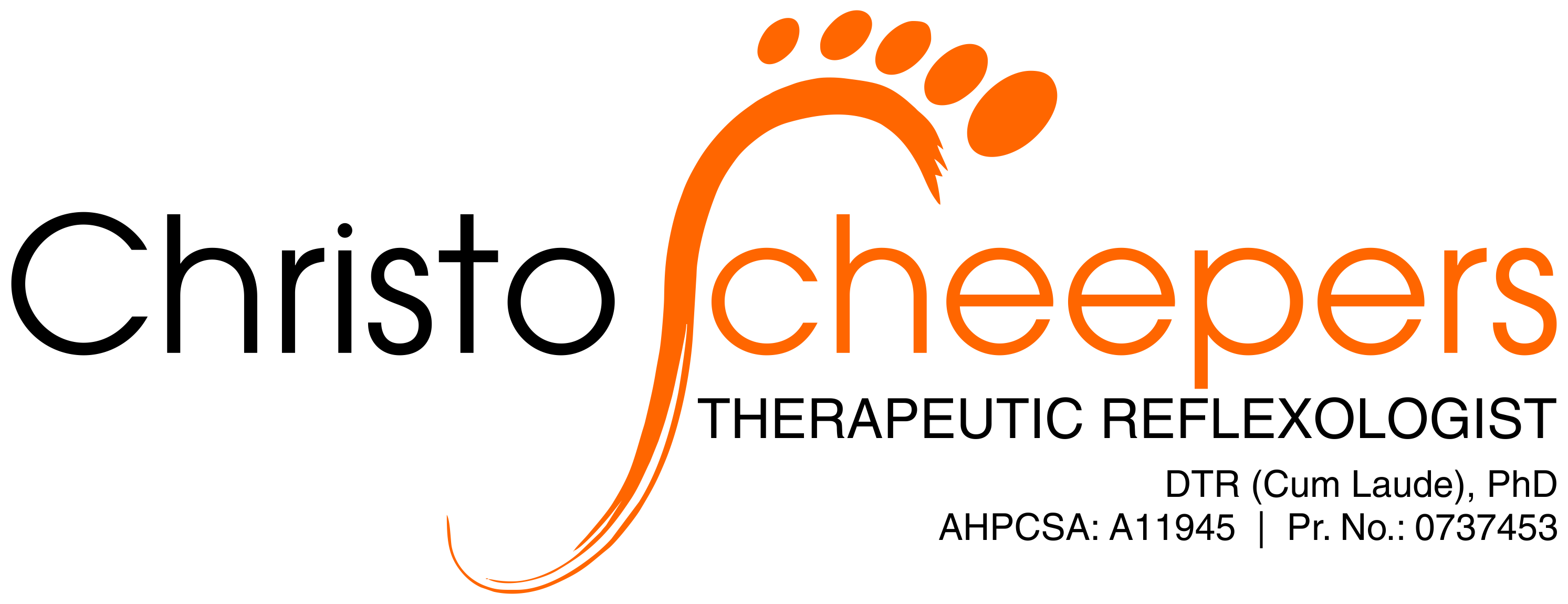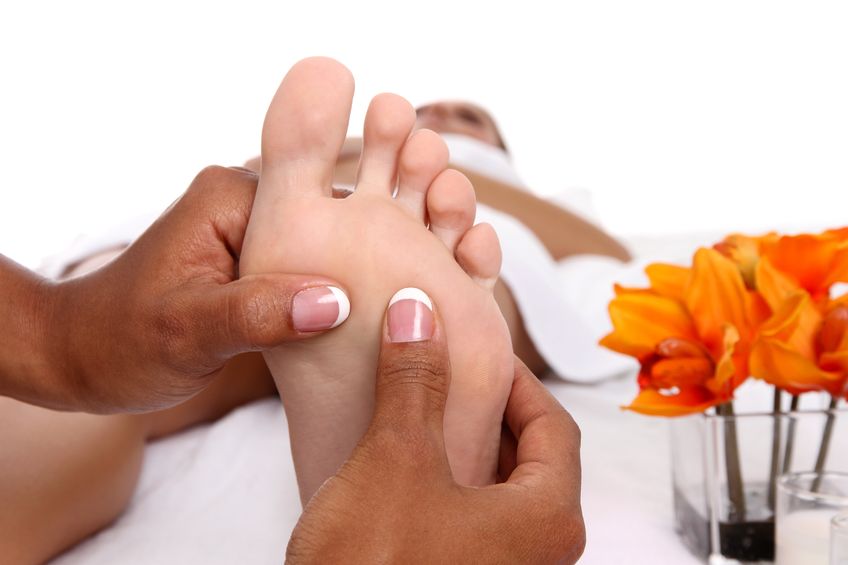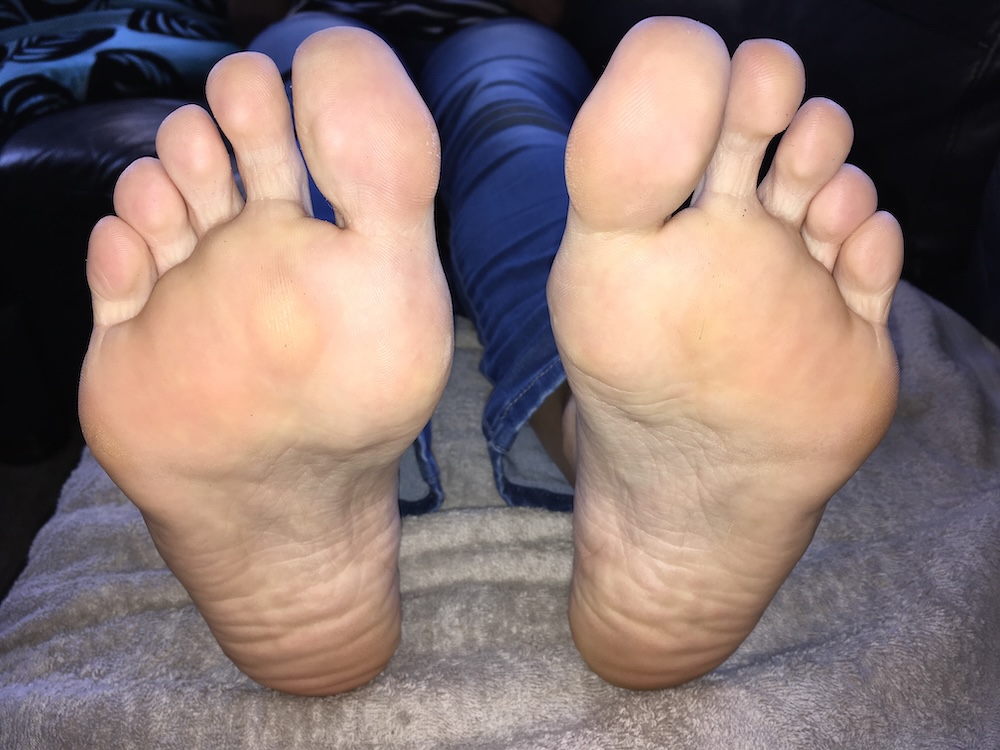In today’s post, during Reflexology week (22-28 September) we’ll contemplate how your feet hint about your stress levels.
Therapeutic Reflexology is a professionally regulated healthcare modality where the feet, but also other areas of the body, are seen as a microcosm of the macrocosm; in other words, the entire body is represented on the feet (and other body parts). When doing an online search about reflexology, you often see a map of the feet representing the different areas of the entire body; similar charts exist of various other body parts. Describing the microcosm of the macrocosm in more everyday language, it can be said that the feet (and other body parts) is a blueprint representing the entire body.
The origin of reflexology can be traced back to ancient times in places like Egypt and China, but in the Western World, it emerged in the 1800s with healthcare professionals like Dr William Fitzgerald (Medical Doctor – Ear, Nose, and Throat Specialist) and Eunice Ingham (Physiotherapist) (The Footladies, 2022; Weidow, 2023). Today, reflexology is seen as one of the most popular complementary healthcare modalities globally and in countries like South Africa, Therapeutic Reflexology is formally registered as a healthcare modality and regulated by a statutory council (The Allied Health Professions Council of South Africa), making medical scheme reimbursements possible.
With all of that said, how honest are your feet about your stress levels?
Therapeutic Reflexology is known as an excellent healthcare modality to reduce your stress levels and to help you manage stress effectively. The reason behind the stress management effectiveness lies in the fact that Therapeutic Reflexology works alongside the body’s own innate healing ability to restore homeostasis. In everyday language, that means that Therapeutic Reflexology helps your body to relax from the inside out resulting in longer stress relief while giving the body the opportunity to start managing your stress more efficiently.
Now, let’s move to your feet …
Your feet are the therapeutic domain for the trained Therapeutic Reflexologist providing a mirror image of where your body is storing stress so those areas can receive special attention during a treatment session. As the Therapeutic Reflexologist looks at your feet and then moves on to touch your feet, there are special hints provided as to what your body is dealing with. What you may think is just a mark on your feet due to your shoes, provides the Therapeutic Reflexologist with valuable insights.
Any marks on your feet, whether a mole or hardened skin or fissures or your toenails or the shape of your feet and toes, all provide the Therapeutic Reflexologist with valuable information. Moving to touching your feet, more hints are provided from the texture of your skin to the hardness or softness of your feet, from the temperature of your feet and the different areas on your feet, to the textures appreciated under pressure with or without lubrication, all provides valuable insights as to where your body carries stress. What makes Therapeutic Reflexology even more fascinating, is that when certain aspects are observed on your feet or appreciated during specific touch, it may also provide insights into your emotional stress, so it is not only about your physical stress, but also how your emotions are affected.
That sounds weird, you may think, but it stems from the Father of Modern medicine, Hippocrates, that emotions are stored in the body and often in specific parts of the body or organs (De Gelder, 2016; Flaskerud, 2016). Just think about it for a while, if you are tense, where do you often feel it? In your shoulders. That is why massage is often seen as a good modality to deal with stress. From Traditional Chinese Medicine, fear is often linked to the kidneys, anger with the liver and grief with the lungs (Vanbuskirk, 2024), but it is not exclusively based in Traditional Chinese Medicine and Modern Medicine and Psychology also acknowledges the interaction between emotions and the body (Grover, 2018; Murnan, 2023). To deal with stress stored internally in the body, Therapeutic Reflexology is the ideal healthcare modality to assist and help the body restore balance.
The feet provide insights into where stress is stored in the body because often the feet provide the “warning signs” of what is happening in the body, almost as the body’s attempt to help you slow down and deal with the constant stress before it evolves into something more serious.
Let’s just put it all in perspective. All stress is not bad. Stress is often the body’s way of helping you accomplish something. If your life is threatened, the body is flooded with adrenaline and cortisol to help you either fight the threat or to run away from it. That is good stress or else the threat might devour you. If you have a deadline to meet and your time is limited, you might experience the same, but that is good stress because it helps you to work hard and to accomplish something and to meet the deadline in the process. Stress is not the problem. Your body is amazing and has been designed to effectively handle stress.
The problem is thus not stress, but constant, ongoing and long-term stress because you were never meant to permanently fight a threat or permanently run away from a threat. When stress becomes chronic, then it becomes problematic because your body remains in the fight-or-flight mode which means your sympathetic nervous system remains activated too long and as a result of this ongoing stress, it may lead to physical problems. Therapeutic Reflexology helps the body to move back into the rest-and-digest mode where the parasympathetic nervous system calms the body and thus restoring blood flow to all bodily organs. Just think about it practically, if you fight or flee, your body does not need to digest food, instead it needs energy to fight the threat or run from it. However, if you remain in that state for too long, it means you are not properly digesting food and that may lead to digestive problems. Think about those times when you have experienced ongoing stress, did you perhaps have an upset tummy or become constipated? It is because you do not properly digest food when you are in a heightened state of stress. That is only one aspect of your body, think about all the other parts that are similarly affected negatively as a result of long-term stress.
Your feet provide the Therapeutic Reflexologist with insights as to what stress is doing to your body and then to address that from a therapeutic point of view.
Please note, Therapeutic Reflexologists are therapists and not diagnostic practitioners and therefore they are not able to diagnose any conditions, but they may do a physical assessment to customise therapy for a specific person and focusing on specific areas that need to be addressed in each person’s body.
So, now that your feet revealed to the Therapeutic Reflexologist where your body carries stress, how do you deal with it? Do you now need to be placed on medication? No, Therapeutic Reflexologists do not prescribe medication but instead addresses the stressful areas in the body by providing a physical therapy on the feet (and sometimes other parts of the body). The therapy in itself is supposed to be very relaxing although certain areas may be sensitive, but the trained Therapeutic Reflexologist will know how to best deal with the different areas.
There are different schools of thought on this as the one school believes that if it is not painful, then it is not effective, however, Christo Scheepers Therapeutic Reflexologist disagrees with this approach and follows the other school of thought which says that it should be relaxing and not unnecessarily painful. The reason for the latter approach, especially when dealing with stress, lies in the basic logic. A person that is stressed, especially chronically stressed, has too much adrenaline and cortisol in the body. If you know provide therapy that is going to be excruciatingly painful, you are creating the opposite effect than what is required, namely, you are going to lie there fearing the next painful pressure point and then your body just excretes more adrenaline and cortisol. The latter school of thought offers a more relaxing treatment where optimal pressure is used to obtain the desired results, but not pressure that is unnecessarily painful.
To conclude, your feet offer valuable insights to the trained Therapeutic Reflexologist as to the physical and emotional stress you are carrying and once understood, Therapeutic Reflexology offers the ideal physical therapy customised for your unique needs. Therapeutic Reflexologists offers you stress reduction through your feet!
If you have not experienced it before, why not give it a try? If you have experienced it before, why are you still stressing and not making your next appointment?
References
De Gelder, B. (2016) Emotions and the Body. New York: Oxford University Press.
Flaskerud, J.H. (2016) Emotions Related to Bodily Organs/Parts. Issues in Mental Health Nursing, 37(4), pp. 265–267. Available from: https://doi.org/10.3109/01612840.2015.1094838 [Accessed 22 September 2025].
Grover, S. (2018) Where do you Store Stress in Your Body? Top 10 Secret Areas. [Online] Available from: https://www.psychologytoday.com/za/blog/when-kids-call-the-shots/201807/where-do-you-store-stress-in-your-body-top-10-secret-areas [Accessed 22 September 2025].
The FootLadies. (2022) Eunice D. Ingham – Mother of Reflexology. [Online] Available from: https://thefootladies.com/eunice-d-ingham [Accessed 21 September 2025].
Murnan, A. (2023) Can Emotions be Trapped in the Body? What to know. [Online] Available from: https://www.medicalnewstoday.com/articles/emotions-trapped-in-the-body [Accessed 22 September 2025].
Vanbuskirk, S. (2024) How Emotions and Organs are Connected in Traditional Chinese Medicine. [Online] Available from: https://www.verywellmind.com/emotions-in-traditional-chinese-medicine-88196#:~:text=Anger%20with%20the%20liver,2%EF%BB%BF [Accessed 22 September 2025].
Weidow, B. (2023) William H. Fitzgerald. [Online] Available from: https://www.ebsco.com/research-starters/history/william-h-fitzgerald [Accessed 21 September 2025].
—
Christo A. Scheepers: Therapeutic Reflexologist
DTR (Cum Laude), PhD
AHPCSA: A11945
Pr. No.: 0737453
Tel. 072-800 7243


